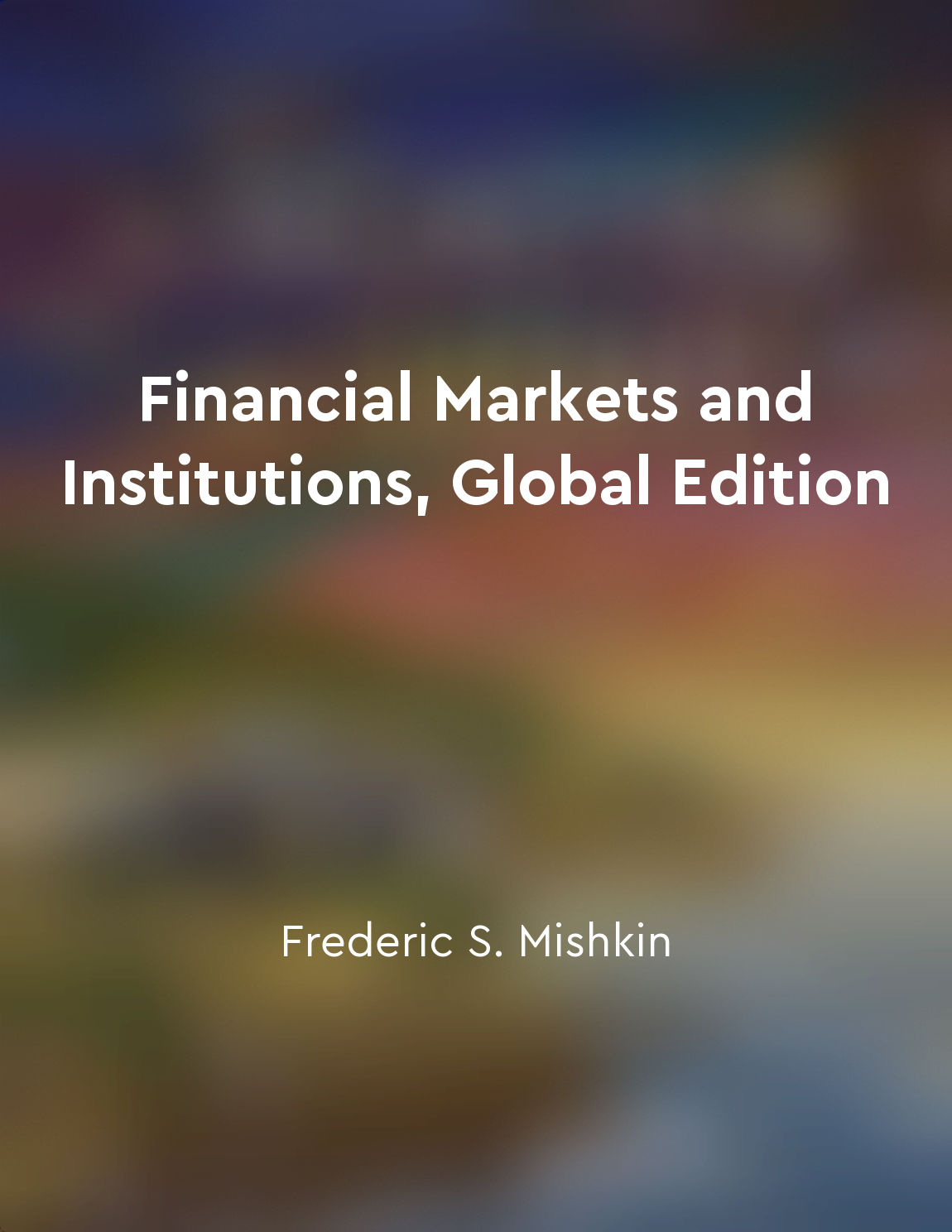Financial crises reveal vulnerabilities in global markets from "summary" of International Money and Finance by Michael Melvin
Financial crises serve as a litmus test for the robustness of global markets. These crises have a way of exposing weaknesses and vulnerabilities that were previously hidden beneath the surface. When everything is going smoothly, it is easy to overlook the cracks in the system. However, when a crisis hits, these weaknesses are laid bare for all to see. One of the key ways in which financial crises reveal vulnerabilities is through the interconnectedness of global markets. In today's interconnected world, what happens in one market can have ripple effects that are felt around the globe. This interconnectivity can amplify the impact of a crisis, turning a small problem in one market into a full-blown global catastrophe. Another way in which financial crises expose vulnerabilities is by highlighting the fragility of certain market structures. For example, the reliance on complex financial instruments such as derivatives can create a house of cards that collapses at the first sign of trouble. Similarly, the over-reliance on debt can leave markets exposed to sudden shifts in investor sentiment. Moreover, financial crises often reveal weaknesses in regulatory frameworks and oversight mechanisms. In the lead-up to a crisis, regulators may turn a blind eye to risky behavior or fail to adequately monitor market participants. When the crisis hits, these shortcomings are brought into sharp relief, prompting calls for reform and stricter enforcement of regulations.- Financial crises are a harsh but necessary reminder of the inherent vulnerabilities in global markets. They force market participants to re-evaluate their assumptions, identify weaknesses, and take steps to strengthen the system against future shocks. While crises can be painful in the short term, they can also be a catalyst for positive change in the long run.
Similar Posts

Economic growth is driven by investment and innovation
Investment and innovation are two key drivers of economic growth. When businesses invest in new equipment, technology, or infra...
Regulatory reform is necessary to enhance economic efficiency
The overarching idea is that regulatory reform is essential for improving economic efficiency. In practical terms, this means c...

The human toll of the crisis cannot be understated
The devastating impact of the financial crisis on everyday people is immeasurable. Families lost their homes, their jobs, and t...
The lasting impact of the 2008 financial crisis
The financial crisis of 2008 left scars that are still visible today. It was not just a blip in the economic cycle; it was a se...
Financial contagion can spread across borders
Financial contagion refers to the situation where financial distress in one country spills over into other countries through va...
Inflation can erode the purchasing power of money
Inflation is a persistent increase in the overall level of prices in an economy. When prices rise, each unit of currency buys f...

Financial crises pose systemic risks to the global economy
Financial crises have the potential to disrupt the functioning of the global economy, creating challenges that go beyond indivi...

